VES Encourages VFX Houses To Work From Home As They Work Through Challenges During Hollywood’s Coronavirus Shutdown
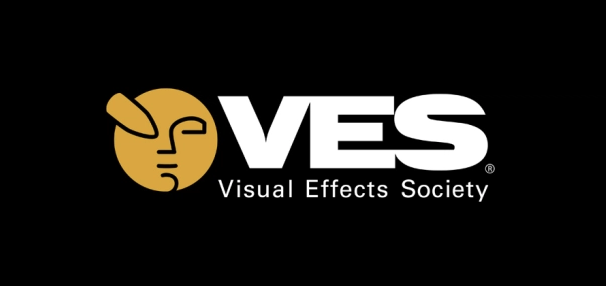
The Hollywood industry has seen some huge obstacles — to say the least — since the coronavirus outbreak. Theaters have shut down, productions have halted, movie release dates have been pushed, festivals have canceled, many film and TV staffers have lost their jobs. And all of it is affecting the often-overlooked post-production houses.
The Visual Effects Society (VES) sent out a statement today urging all employers of VFX houses regardless of size, grant permission for their employees to work remotely during the pandemic. “We understand the concerns around security to protect proprietary work product, but right now is the time for the utmost flexibility towards VFX artists and all practitioners as we try to figure our way through this crisis,” the VES statement said. “Many companies are trying to take action, and we are optimistic that studios and vendors can find and enact workable solutions.”
VES also released a best practices guide to work from home, which is designed to help the VFX community by providing “technical solutions to common problems practitioners may encounter in preparing and adapting to work from home workflows, acknowledging the security and technical issues involved.”
Since many houses hinge on work churned out by the studio machine, many are still able to slowly finish existing work. That said, the effect of halted productions will be felt by companies in the forthcoming months.
It seems as though many have already adopted work-from-home practices since the outbreak began. Big houses like Industrial Light & Magic have all personnel from the five studios running and they are secure and delivering work. For mid-sized and smaller houses, they are navigating the storm and staying motivated through the COVID-19 obstacles.
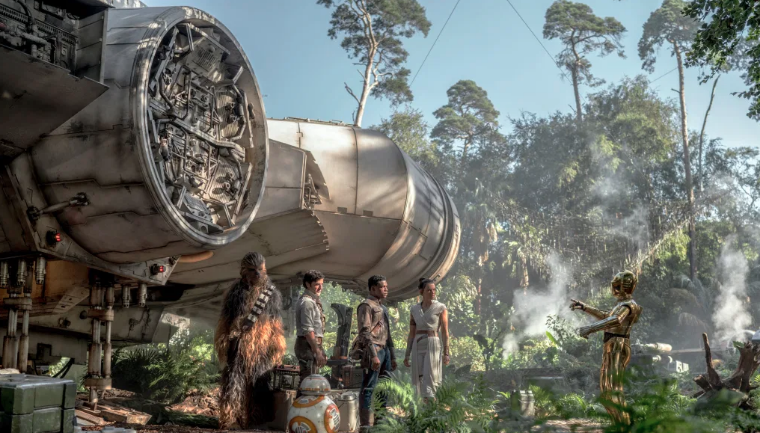
‘Star Wars: Rise of Skywalker’, Disney
Based in Culver City, Zoic Studios has worked on shows like Game of Thrones, Warrior and Arrow and they currently have a full plate of 30 projects that include Fargo, SEE, Stargirl, DC’s Legends of Tomorrow, NOS4A2 and The Haunting of Bly Manor. Zoic Studios Co-Founder and Creative Director Andrew Orloff told Deadline that with the slowdown of the entertainment industry, the amount of new traditional VFX work coming into Zoic has also begun to slow down.
“In a traditional cycle, we operate on completed work, sometimes with several episodes waiting for Visual Effects. This tempered layout allows us to reach deadlines and airdates ahead of production,” Orloff said. “Our cue is full and slated months into our future as the studio machine follows behind.”
He adds, “We are well-versed at adapting to industry changes. At the same time, we are passionately committed to evolving and helping redefine the business on the terms we were founded on. At the base of this determination is a commitment to our clients and staff to find a way.”
As the timeline for the shutdown of TV and film productions remains uncertain, Orloff is confident that Zoic will find more avenues for work. “Given limitations with live-action production, there also may be a demand surge for CG materials that don’t require production plates,” he said. “As more people are home, and will be for the foreseeable future, there is a higher need for new content now more than ever, and studios are wanting to deliver as quickly as they can. Our ability to deliver photo-realistic virtual production and living characters may enable not only our business to thrive but also create remote opportunities for others in entertainment.”
It’s good news that the work for Zoic and other VFX studios seems stable for the time being, but in a time of “social distancing”, how are these companies navigating their work environments that require lots of collaboration and massive servers?
Zoic has physical servers in secure locations across North America that can be accessed through a deskside portal. This has made it easier for Zoic employees to transition into working virtually. Their New York team is currently working from home and Vancouver and Los Angeles will make the virtual move next week.
A few weeks ago, Dave Zeevalk, Creative Director, Visual Effects of Alkemy X said that they began to look into options for a virtual workflow that were more “robust” than anything they had used prior. Alkemy X’sr production, pipeline and IT teams built and documented a new virtual workflow that included brand new servers to allow for remote work and prevent redundancy.
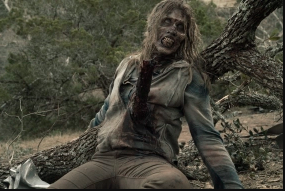
“Fear the Walking Dead” AMC
“Given the rapidly changing situation, we decided to make the overhaul happen sooner rather than later and were able to deploy a team of 60 to 70 people to an entirely remote virtual workflow for visual effects in a matter of days,” said Zeevalk.
One challenge for Alkemy X, which has offices in New York, Philly, Los Angeles and Amsterdam, was satisfying security compliances for sensitive and proprietary content for their top studios. “Everything we put in place was 100% compliant with their requirements, which is a heightened challenge for remote work,” he said. “Our pipeline team has been working real-time to write proprietary tools and services to ensure that our hardware at the office is not only monitored but able to automatically react to issues that may come up, which might cause an artist to be down for any amount of time.”
He points out that changes were made without a lot of time to plan, but made with “the highest level of efficiency”. So far, their workflow and quality for their current projects such as the sixth season of Fear the Walking Dead as well as the forthcoming Starz show Power Book II: Ghost and the Amazon YA series The Wilds. On the feature side, they are finishing up two undisclosed films for Warner Bros. and New Line.
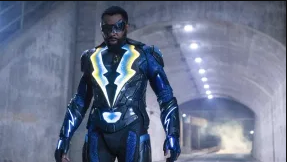
‘Black Lightning’Josh Stringer/The CW
With offices in Los Angeles, New York, Vancouver and Atlanta, FuseFX is facing the same challenges as Alkemy X in terms of secured content and the data-intensive collaborative work processes. Earlier this month, there were no reported cases of COVID-19 among their employees so the studio continued to operate as normal. But as things progressed they were able to enable all of their employees to work from home at this point.
Like the other houses, security is a concern and FuseFX founder and CEO David Altenau told Deadline that they have taken a “massive effort” to create a secure and effective system for their artists and other production personnel while they work from home.
“We have a very elaborate production management system that has allowed us to setup up the majority of our employees to work remotely without any data leaving our secure servers, but able to collaborate almost as if they are in the office,” said Altenau. “We also have very high-speed internet connections and robust routers and networking gear that allows us to do that. Many facilities are having more difficulty getting that setup.”
He adds, “We are committed to meeting our deadlines and delivering the VFX work related to those projects on schedule to meet required air dates and theatrical releases. So there has been continued pressure to maintain our operations at full capacity as many other businesses are shutting down.”
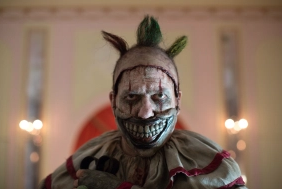
‘American Horror Story’FX
FuseFX’s project slate includes Penny Dreadful: City of Angels, American Horror Story, Them Covenant, DMZ, Agents of S.H.I.E.L.D., Hollywood, Snowpiercer, Black Lightning, The Outsider, among a long list of others. They are also working on high-profile projects AppleTV+ and Disney+.
As for Australian-based house Rising Sun Pictures, which has worked on films such as Thor: Ragnarok and Ford v Ferrari, continues to push through. They started executing their COVID-19 escalation plan in January.
“We are activating our escalation plan in stages, most recently removing any non-essential non-production staff within the bounds of our client’s security requirements,” said Rising Sun Pictures director Tony Clark. “Earlier in the year we had implemented escalated hygiene and cleaning practices and are practicing social distancing. Further actions will be implemented over the coming weeks.”
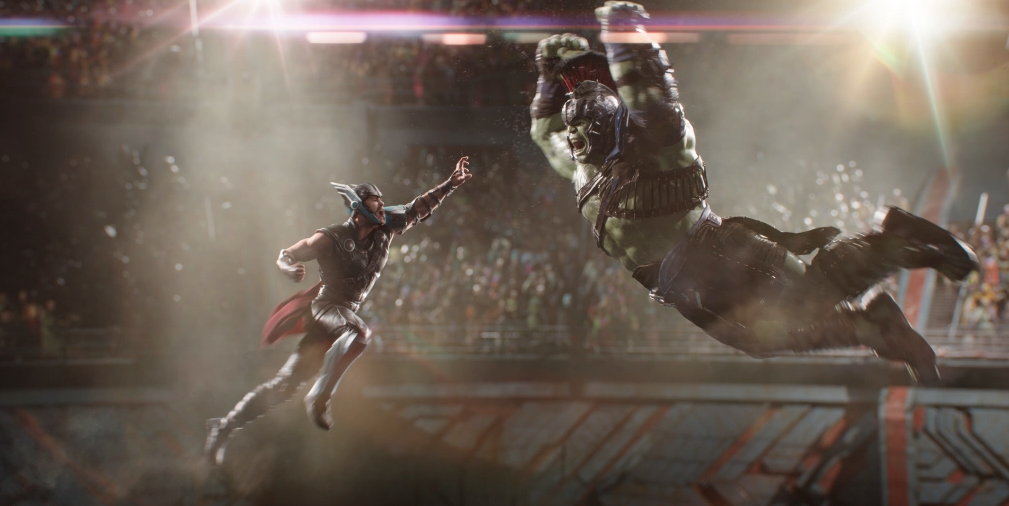
“Thor: Ragnarok”Disney
Rising Sun has yet to see an effect from the production shutdowns. They were on a number of projects that have been suspended but their current workload is on target.
The VFX studio The Molecule, which has offices in New York and Los Angeles, is currently working on many high-profile projects including Dickinson, Billions, Genius: Aretha, Little Voice, Schooled, For Life, Stranger as well as the features Stillwater, Work It and Bliss. CFO Andrew Bly said they have been working on a work-from-home platform for the past six months and are putting it through the test now. As of Monday, their entire company of 52 artists, producers and supervisors have transitioned into working remotely. “Shots are flowing out as if we were at the office and we keep on learning a lot each day about large remote team management,” said Bly. “Honestly, the whole process has brought us closer together.”
Read the original article here.